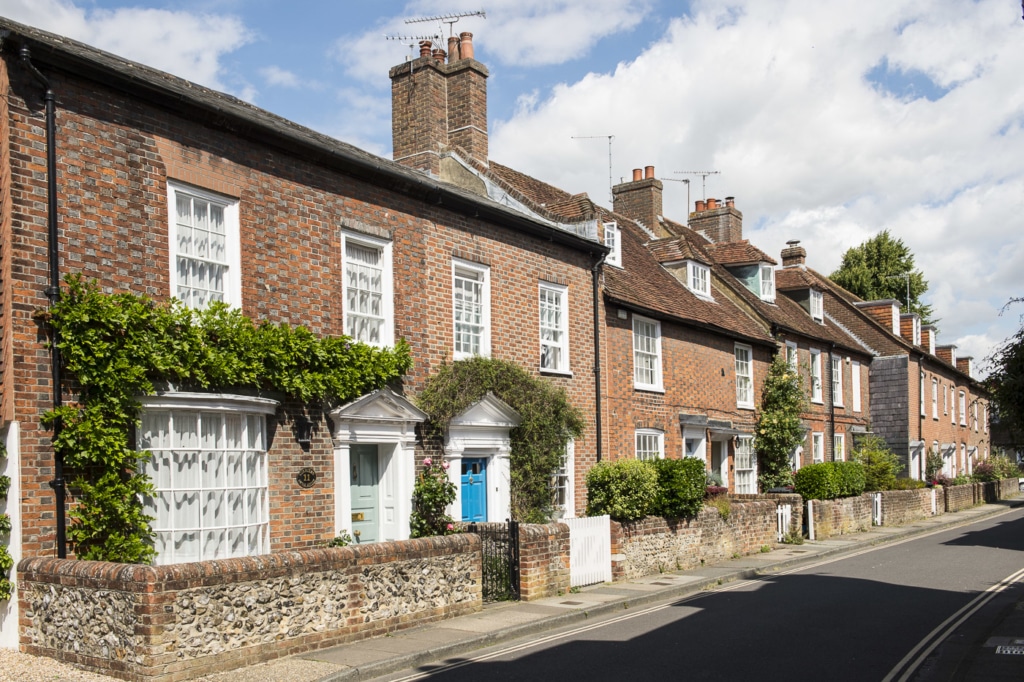The Southeast housing market remains strong

The Southeast housing market remains strong
Though the rate of house price growth in Q3 (July, August & September) in London has fallen by 0.6% year-on-year; house price growth in the Southeast has remained strong at 3.9%. The average house price growth rate in the UK was at 2.2% for the same quarter, the UK average house price being £210,982. In the Southeast the average house price is £277,519, compared to £471,761 in London.
Looking at the bigger picture the rate of house-buying (residential transactions) has slowed to around 5% and is level with 2013 transaction rates. After the 2008 financial crisis homeowners were reluctant to move. The rate of transactions fell to its lowest rate ever in 2009; during this period, a house would typically change hands every 25 years.
How has homeownership changed?
Restrictive planning policies mean that there are 50,000 less new-builds per annum than there were in 1981. As the cost of living has risen and wages have fallen or stagnated houses have become less affordable for many young and working-age people. Saving for stamp duty, estate agent fees and a deposit is a challenge. The average deposit for first time buyers is now roughly equivalent to a years’ salary. An ageing population is a less mobile one; retirees are reluctant to downsize when, for many, their home is their most valuable asset. Council tax was last updated over 20 years’ ago in 1993; the most expensive homes are taxed relatively leniently which disincentives homeowners to move. At the other end of the spectrum stamp duties have risen substantially amounting to a 30% increase per residential transaction, since 1997.
On the increase too is the number of single homeowners now at 30%. Not surprising then to learn that one in three of Britain’s housing stock has two or more spare bedrooms. Overcrowding, the number of people compared to the number of bedrooms, however is rising. The number of people willing to commute to work for two hours or more rose by one fifth from 2011 to 2016 according to property analysts Hudson and Green. Holding onto a good job and the property that is afforded by it seems to be a priority.
What are the options to save for a deposit?
There are some specific options to save into an Individual Savings Account (ISA) that earn a government bonus 25%. This is to encourage both saving and homeownership.
Which ISA is suitable depends on whether a would-be homeowner is a first-time buyer, or a buyer that is aged over 18 years but under 40 years’ old.
Help to buy ISAs are for first-time home buyers. They are for each individual buyer not for each individual home; meaning that groups of buyers can save for a deposit together. Individuals can save up to £200 per month and can open the ISA with a deposit of £1,200. The government will top up the Help to Buy ISA with a maximum of £3,000 if the total savings are at £12,000.
Lifetime ISAs can be used to buy a first home or to save for later life. Individual savers must be aged between 18-40 years’ old, and can save up to £4,000 per annum until they are 50 years’ old. The capped savings of £4,000 per annum count towards an individual’s annual ISA savings limit. The government will add a bonus to savings of 25%, a maximum of £1,000 per annum. The Lifetime ISA can be invested in stocks and shares or held as cash or invested as a mix of cash and stocks and shares.
Can mortgage repayment terms be lengthened?
Longer mortgage repayment terms are increasing in popularity, however the interest that is paid back over a longer term is significantly higher that if the mortgage is paid back over 25 years or less. Here are some examples of monthly mortgage payments and total interest on a repayment mortgage of £150,000 with longer repayment terms.
Longer term repayment mortgage comparison of £150,000 mortgage with an assumed interest rate of 2.5%
| Term | Monthly payment | Total interest |
| 20 years | £794.85 | £40,764 |
| 30 years | £592.68 | £63,365 |
| 40 years | £494.67 | £87,442 |
*Source L&C Mortgages
As ever we would advise you to speak to an Independent Financial Advisor about your finances. To arrange a consultation with Marchwood IFA please call 01243 532 635. We have specialists that are able to discuss specific options with you.
To discuss mortgages & insurances please ask to speak to James Mayne.
To discuss Life, serious illness and income protection insurances (to protect a debt such as a mortgage or to make sure that your family is well looked after financially after the death of a parent/partner) or equity release to help you plan for income in retirement please ask to speak to Hamish Gairns.
To discuss retirement and investment plans with us please ask to speak to Richard Smith.
